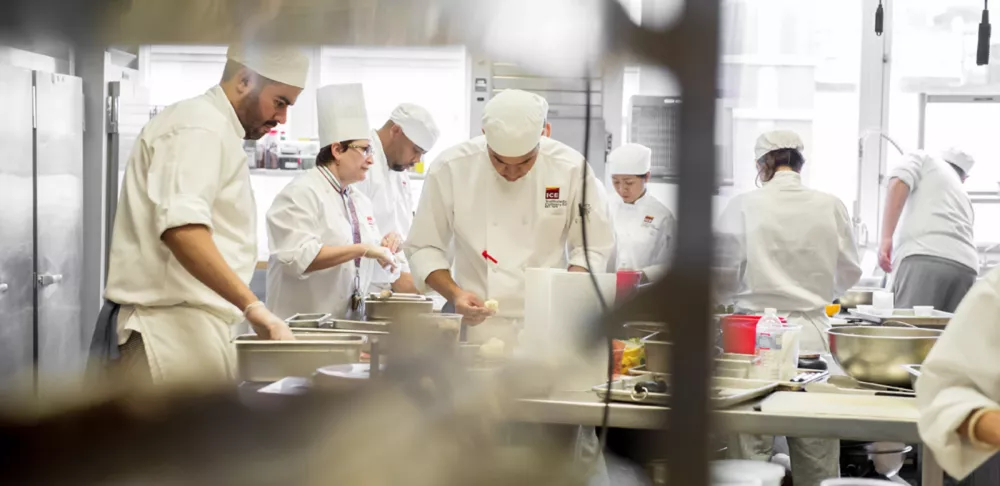No matter what your goals are after graduating culinary school, there are countless ways you can maximize your education. While the classroom provides an incredible environment to learn in, real-world experience is critical for thriving both personally and professionally.
School can give you the skills and the foundation, but here are seven ways I've learned you can expand upon your culinary training:
- Read, Read, Read While reading assignments are already a part of my Culinary Arts and Culinary Management curriculum, there is a seemingly infinite number of books that could take my learning even further. ICE is home to a robust library of publications about food science, food history, chef biographies, restaurant management and regional cuisines, as well as an impressive cookbook collection. As a student, we have free access to all these materials, so why not expand your education by creating a reading list that complements what you are learning in each module?
- Cook What You Love In addition to your scheduled classes, take advantage of ICE’s single-session cooking, baking and beverage classes through the schools of Recreational Cooking and Professional Development. From dim sum to Tuscan cooking, chocolate confections and modernist cuisine, there’s a class for nearly every interest. They’re also an awesome opportunity to meet other people who are interested in food!
- Mix and Mingle Take a couple of hours each week to attend food events around the city. From tastings to film screenings to lectures, you’ll be exposed to trends in the food industry and connect with others who share your professional goals and interests! My Culinary Management teacher told my class that we should be meeting four to five new people every week–networking is key!
- Practice Your Knife Skills When I learned how to fabricate a whole chicken and execute a “medium dice,” my chef instructor told the class that we should practice outside class at least twice a week. It’s easy to fit that task into everyday life, as buying whole chickens and vegetables is cheaper than buying pre-cut ingredients! Enhance your homemade recipes with beautifully sliced vegetables and invite friends over to impress them with your knife skills. My favorite trick? Save the scraps from your medium dice potato practice to make mashed potatoes and home fries.
- Dine Out—For Research Eating out may seem like a luxury, but it’s also important research for aspiring culinary professionals, no matter which program you are in. Bring a small notebook and jot down what you notice – what worked, what didn’t and how can the restaurant improve? In the Culinary Management program, we regularly share our observations about food establishments we have visited, from the service to the food to the branding as a whole. These are all important details you can use when it comes time to start your own business or restaurant. Going out to eat and making observations makes you a better chef or manager because creating a quality experience is all about paying close attention.
- Give Back to the Industry ICE constantly updates students about volunteer opportunities, from supporting up-and-coming chefs at James Beard House dinners to contributing to the mission of food-centric charities. There are too many great volunteer opportunities to name, ranging from nonprofit work to glitzy events, weekly shifts to one-night commitments. In addition to culinary events and festivals around the city, I volunteer twice a month at God’s Love We Deliver, an organization that provides nutritious, high-quality meals to people who are living with serious illnesses. Volunteering is not only a great way to help others, but it has proved to be a way to meet interesting people and—yet again—refine my knife skills.
- Get Outside Your Comfort Zone There’s nothing that will prepare you better for real-world kitchen experience than actually working in a restaurant kitchen. Completing an externship is part of most programs at ICE, but if you are eager to get experience before the last module of the program, a part-time job is a great solution. Your class time has given you a solid foundation, now put those skills to work!
For free information about ICE’s career training programs, click here.




